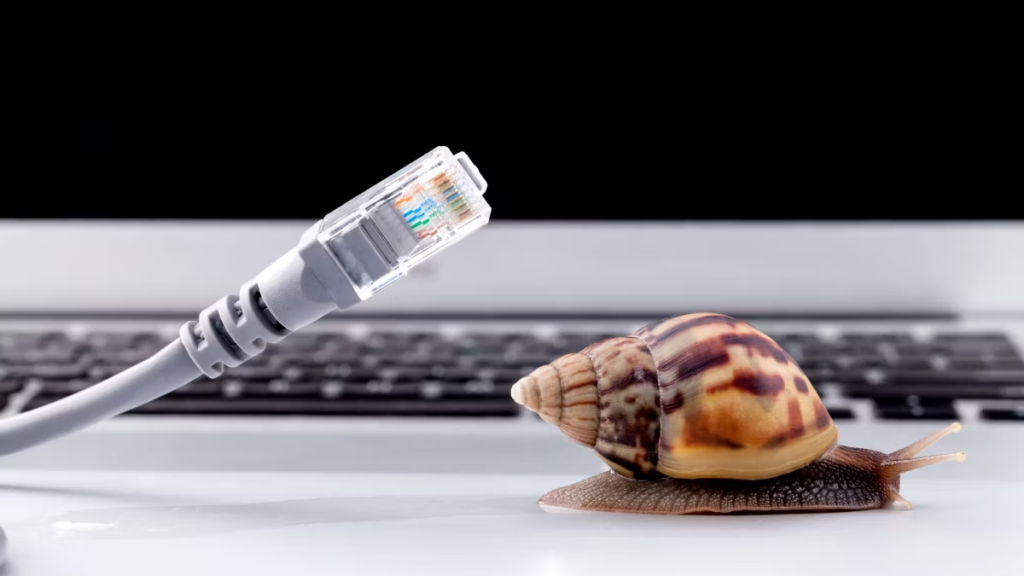If your video is lagging and downloads are taking forever, don’t bang your head on your keyboard. Try these fixes to put your digital life back in the fast lane.
- Your Wireless Connection is Iffy: Make sure the home computer is connected via a wired Ethernet cord for performance reasons – especially if you feel that you don’t know what you are doing. This is because wired is a closed system where variables can be controlled. Wireless is an open system and the environment (and performance) is constantly changing.
- Your Router is Cheap: Make sure your home routing/switching gear is top-notch. Twenty-dollar gigabit switches are fine, but routers under $200 will likely not function well. This is because routers are essentially PCs with purpose-built software. They make them cheaper by putting in less expensive CPUs and less memory. A router above $200 will actually weigh more. This is a good sign. More CPU and memory take more metal.
- You Don’t Know your Mbps: When dealing with the Internet the term ‘Mbps’ frequently crops up in association with connection speed, prefaced by a number (e.g. 75/75 Mbps). However, most people have no idea what Mbps stands for, let alone any concept of what it actually is—what’s a good number? What’s a bad number? Think of it this way: Mbps is to the internet what horsepower is to cars. You can actually just type in ‘speed test’ into your Google search bar and select the first option that comes up—Google’s speed test. It’s fast and reliable.
- You Don’t Have Enough Horsepower: After you know your Mbps, you should determine how much speed you actually need. This is based on how many people are using your Internet connection, and what they’re using it for—streaming TV, streaming music, browsing the Internet, etc. If you’re living alone and just streaming music and browsing, for example, 5 Mbps may be enough. If you’re a family that likes to stream frequently, you should be looking for around 20 Mbps.
- You Need A Better Plan: If you’ve checked your speed, compared it with the number your Internet provider should be getting, and the numbers match up, then you might just be paying for slow Internet. In this case, you might want to consider opting for an upgrade.
- You’re On An Overloaded Channel: The problem might also be the channel that your WiFi is on. Like radio, different WiFi signals connect to different channels. You can use a tool like Network Analyzer Lite (for iOS) or Wifi Analyzer (for Android) to see if your WiFi channel is overloaded and/or manually choose a new one.
- Time for a Modem Reset: If you’re getting slower Internet than you’re supposed to, you can try resetting your modem and router (turning them off and on again). You might also want to check the other devices in your house before or after this step. If it’s just one device that’s slow, you might just have a hardware problem.
If the lights on your modem and router all come on like they’re supposed to after resetting them, try grabbing the ethernet cable that your ISP should have given you when they installed your Internet to connect your computer directly to the modem. Reset the modem again. if you have Internet after this, it’s a router problem. If not, it’s time to call your ISP.
- Your WiFi is in a Bad Spot: Try moving your router out into the open, if you normally keep yours in a cabinet or closet. Having open space for its signal can have a remarkable improvement on your WiFi speed. If you have a big home, it might be a distance issue from your router. Try testing your speed when you’re near your router versus when you’re farther away. If you notice a difference, it might be worth investing in some WiFi extenders for a mesh network.
- Other Devices Are Causing Interference: There are devices in your home/office causing interference to your WiFi signal. Electronic devices that emit radio frequency (radio, TV, monitors, etc.) can cause this. Try removing them from your space to check whether they are the issue.
- Background Programs Are Eating Up Bandwidth: Games and programs that work with videos, in particular, can heavily impact your network and cause connections to appear slow. It’s easy to forget these applications are running. Check your computers for any programs that are running in the background when you troubleshoot a slow network.
- Your Computer Has A Virus: Sometimes, your computers get infected with viruses that steal your resources without you knowing and will slow down your Internet speed. Install effective and trusted antivirus software to avoid this.

